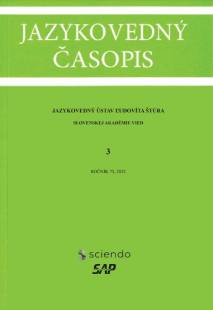Linguistic discrimination as a social, legal and human rights phenomenon
Linguistic discrimination as a social, legal and human rights phenomenon
Author(s): János Fiala-ButoraSubject(s): Language and Literature Studies, Applied Linguistics, Sociolinguistics, Sociology of Law
Published by: Jazykovedný ústav Ľudovíta Štúra Slovenskej akadémie vied
Keywords: linguistic rights; equality; anti-discrimination; Hungarians in Slovakia; international human rights law
Summary/Abstract: This article explores the difference between equality and the absence of discrimination within the area of language use. It draws on examples of social practices of linguistic inequality in Slovakia, and analyses how these are regulated by Slovak law, international law and laws of countries of best practices. The article argues that these examples represent three different models of linguistic equality: formal equality, equality of opportunities and substantive linguistic equality. It will analyse how these approaches empower or disadvantage speakers of minority languages, and what normative guide they provide for linguistic equality.
Journal: Jazykovedný časopis
- Issue Year: 73/2022
- Issue No: 3
- Page Range: 285-302
- Page Count: 18
- Language: English

